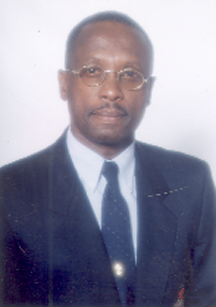Political cooperation between the government and the opposition may depend on a negotiated “compromise” on handling the full disclosure of the PPP/C’s excesses in office, according to former minister Dr. Henry Jeffrey.
“We have here a serious conundrum. The opposition cannot have a meaningful working relation with the PPP/C without its making full disclosure of its period in government and the PPP/C cannot make that disclosure without creating serious problems for itself,” he wrote in his weekly Future Notes column in the Stabroek News yesterday, adding that those in the PPP/C ranks who would be most “endangered” by a comprehensive disclosure see their salvation in the party attempting to reverse its strategic loss.

“So where do we go from here? Should we not be looking for some way of circumventing or mitigating the likely personal danger of disclosure upon the culpable? Many would say no and demand retribution. They want persons to fall on their swords! If this is our national response a long struggle may lay ahead. However, in this dilemma, I see opportunity. I believe we should seek to negotiate a compromise which would remove or severely limit the personal dangers of disclosure but allows us to proceed to constitutional reform and new ways of governance,” Jeffrey also wrote.
According to Jeffrey, who served as Health, Labour, Education and Foreign Trade ministers in successive PPP/C administrations, “serious personal consequences for many persons” are likely from the level of maladministration and corruption suggested by the many allegations surrounding phantom squads, national holding company NICIL, contract awards, and land distribution under PPP/C administrations. “If this was not so the government would have long followed the advice of its founder leader, Cheddi Jagan and place all the records and accounts in the public domain rather than becoming involved in convoluted and highly questionable explanations for not doing so,” he said.
He noted that President Donald Ramotar recently reported that he will open the records of GuySuCo to the main union, the Guyana Agricultural and General Workers’ Union (GAWU). “This is like the PPP opening the book to the PPP but every journey starts with the first step,” he observed.
Loss of strategic
‘advantage’
Jeffrey’s conclusions are based on his suggestion that the PPP/C has lost its long held “strategic advantage” of an available ethnic base, which he said was alienated by government excesses.
“For some half a century until the elections of November 2011 the PPP ethnic base served it well. So well that some in the party began to believe and act as if that strategic advantage was permanent. This gave rise to a kind of hubris not unlike that which came upon a section of the right wing political elite in the US after the fall of communism. And just as their chauvinistic exuberance incensed many persons nationally and internationally, the PPP/C’s excesses alienated sufficient of its traditional supporters and thus led to its present minority status. However, just like the Obama administration has been gradually rebuilding the loss of US soft power, many in the PPP/C, view their loss as temporary: something that could be rebuilt,” he wrote.
The former minister said that particularly at election times, both the PNC and the PPP play to their ethnic base. “However, having more to lose, during the last election campaign we had many vivid public examples of the PPP/C doing just that. For example, consider the racist interpretation that it attempted to put on the minor disturbance which took place at City Hall on nomination day! Long before the pernicious racist editorial which was so widely condemned, the Guyana Chronicle had been attempting to ethnically radicalise the base,” he wrote, while citing an example published in the Guyana Chronicle.
According to Jeffrey, had the police not killed some protesters in Linden, it would have provided the perfect feeding ground for PPP/C propagandists. He said that the killings placed the regime in a dilemma. On July 18, three protesters were fatally shot and about twenty others were wounding after police opened fire in the mining town. The protest, organised against a proposed increase in electricity tariffs, subsequently ballooned and only recently was agreement reached that saw the protest being halted.
Jeffrey suggested that if Linden teaches anything, it is that the PPP/C cannot alone manage this nation and after two very difficult decades in office. “I suspect that the PPP/C realizes this. Its many protestations that it is doing the best it could “in the given circumstances” are clear indications of this. But even if that party is now prepared to make governance compromises, some of its past excesses are stumbling blocks to its doing so,” he said.





